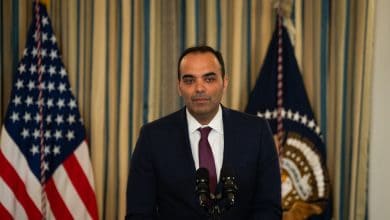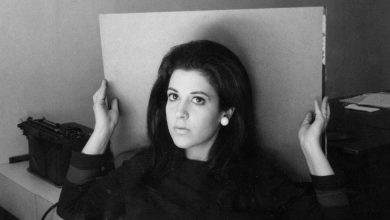Elon Musk Said Tesla Buyout Plan Didn’t Involve ‘a Specific Number’

Under direct questioning by a federal judge on Tuesday, Elon Musk could not say exactly how much money investors were considering putting into his 2018 proposal to take Tesla off the stock market.
Mr. Musk wrote on Twitter on Aug. 7, 2018, that he had “funding secured” for the deal. But during his last day of testimony in a trial in San Francisco, he acknowledged that individuals and investment funds he had discussed his plan with had not indicated the amounts they were willing to invest in the deal.
“Not a specific number,” Mr. Musk replied after the judge, Edward M. Chen, told him that he had to answer “yes or no” when asked whether dollar amounts had been discussed. Judge Chen asked Mr. Musk the question at least twice, intervening after Mr. Musk did not clearly answer questions posed by a lawyer for the investors suing him and Tesla, Nicholas Porritt.
When Mr. Porritt again asked whether any investors had committed to specific amounts, Mr. Musk said he was willing to include the large number of Tesla shares he owned in the deal. “I mean, I certainly have myself.”
Mr. Musk, who testified for seven hours over three days, and his legal team have argued that funding for the deal was in fact plentiful while adding that it was difficult to come up with exact amounts until it was clear how much money was needed to buy out shareholders who didn’t want to be part of the deal.
The investors bringing the case say they suffered billions of dollars of losses after Tesla’s stock rose in response to Mr. Musk’s statements about taking the company private but then fell when the proposal went nowhere. Judge Chen has already ruled that two of Mr. Musk’s posts on Twitter were false and that he was reckless in publishing them. But the investors must show that the false statements, and not other statements from Mr. Musk or other factors, led to their losses.
Mr. Musk, wearing a dark suit, a black surgical mask and combat boots, entered the courtroom and watched jurors walk to their seats. He tried to minimize the importance of the plaintiffs, telling Mr. Porritt that, “in my opinion, you don’t represent” most investors. Judge Chen described these comments as “inappropriate” and struck them from the court’s record.
Mr. Musk also tried to say most Tesla investors are happy because the company is worth more now than it was in 2018 — another statement that Judge Chen removed from the court’s record. Two of Mr. Musk’s lawyers threw up their hands and shook their heads.
In testimony on Monday, Mr. Musk maintained that he had not lied or misspoken about his plan to take Tesla private because executives at Saudi Arabia’s sovereign wealth fund had expressed interest in the deal, even though they had not signed documents committing to it or discussed how much they would invest. He said “funding secured” had also referred to his stake in SpaceX, the rocket company he runs, because he could have borrowed against those shares or sold some of them.
On Friday, Mr. Musk acknowledged that he provided important information about Tesla on his Twitter account and that it had to follow rules from the Securities and Exchange Commission. But he said his social media posts did not necessarily cause swings in Tesla’s share price.
In 2018, Mr. Musk and Tesla settled a separate lawsuit with the S.E.C. about his plan to take Tesla private. They paid fines to the S.E.C., and Mr. Musk agreed to resign as Tesla’s chairman and to allow a lawyer to review some statements about Tesla before he posted them on social media.




